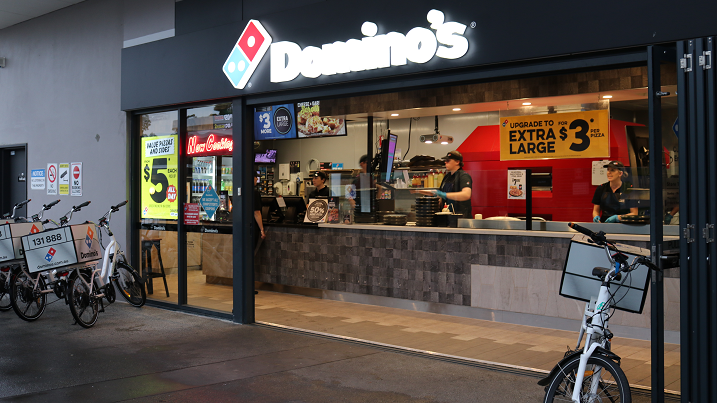Franchising systems have underpinned aggressive and successful growth strategies for many well-known and highly regarded retail brands. These successes have been matched by major setbacks and failures, however, as well as a long trail of legal disputes. Franchising is promoted as a win-win deal with greater prospects of success than for independent businesses but it doesn’t eliminate all the risks of starting a new venture and, in some respects, adds more. The most critical additional risk is
sk is the relationship between the franchisor and the franchisee, which can break down even if the expectations of each party have been thoroughly explained and agreed upon.
In a corporate chain, notwithstanding Fair Work constraints, ending a relationship with an underperforming employee is relatively straightforward, compared with the complexity and potential cost implications of terminating a franchisee.
Legislation regulating franchising was most recently amended in July 2021, following a Senate Committee inquiry into the operation and effectiveness of the Franchising Code of Conduct in 2019.
The inquiry followed extensive media coverage of wage theft and employee exploitation involving a number of retail franchise systems and the breakdown in franchisor-franchisee relationships.
To the consternation of the sector, three of the franchise systems whose practices were criticised in the inquiry were celebrated industry award-winners. The operations of the ASX-listed food franchise systems Retail Food Group and Domino’s Pizza Australia, and one of the nation’s largest private companies, 7-Eleven Australia, were under intense scrutiny before and during the inquiry.
All three companies have faced legal action after investigations by regulators and through proceedings disgruntled franchisees have initiated. Multimillion-dollar settlements of legal disputes – including penalties regulators have imposed – and changes to business practices have substantially resolved the issues that generated the negative media coverage and the inquiry.
Ironically, the wage theft issues and conduct disadvantaging franchisees seemed to have limited impact on consumer support for the companies. However, there has been reputational damage for the companies and collateral damage to other franchise systems.
Landlords and financiers are now more wary of franchise systems, and politicians and regulators are keeping a sharper eye on the sector. Also, the queue of enthusiastic investors in franchise opportunities has no doubt been shortened by the avalanche of negative media coverage – which hurts the growth prospects of retail franchises.
Other factors hurt franchisee recruitment
It must be said, though, that other factors are also affecting franchisee recruitment, including the uncertain economic conditions, and rising costs for businesses, headlined by interest rates and wage and energy price increases.
The demanding trading hours of retail franchises and tougher lending criteria from financiers, along with a more risk-averse attitude toward superannuation deployment, are further factors influencing recruitment.
And the problems for franchises don’t stop there. Notwithstanding higher prospective revenues, the financing of retail franchises generally involves a high entry cost because of store fitouts, inventory, tenancy rents and outgoings. Also, tighter economic and financial conditions are more problematic for retail franchises than for services systems.
The recruitment issue is critical for retail franchise systems, as the industry’s success in building brand recognition and financial profitability for franchisors and franchisees alike has relied on aggressive growth strategies.
Retail franchises will still have expansion opportunities, both for existing brands and new entrants to the sector, but there are headwinds that include the availability of quality franchisees and the need to rebuild trust with banks and financiers, landlords, regulators, politicians and media. Many will need to evaluate and, in all likelihood, modify their business models and their processes.
Past, present and future challenges
In short, there are plenty of obstacles to navigate. And some of them started developing years ago. The main reason for the wage theft issues and heightened levels of franchisee disputes leading to the 2019 Senate inquiry was the sluggish trading conditions that triggered the tumbling interest rates long before the Covid-19 pandemic, in a bid to stimulate the economy.
Most retail businesses, not just franchise stores, were finding trading challenging and many attempted to bolster profitability with tight controls on wages and operating costs, and by reducing floorspace or closing stores.
The tight wage control – read underpayment of employees – involved a who’s who of the retail industry, from Woolworths and Coles down to independent corner stores.
Those pressures are still evident, albeit perhaps a little moderated by a competition shakeout in some categories. Meanwhile, the new headwinds include inflation, rising interest rates, higher wages and employee costs, some markedly changed staff attitudes toward work, and fragile consumer confidence with discretionary spending expected to become more cautious.
Finally, a changing political landscape creates a potential future headwind.
Two Senate inquiries have found shortcomings in the Franchising Code of Conduct and the enforcement powers of regulators.
The Morrison Coalition Federal Government’s 2021 legislation strengthened disclosure requirements in franchise negotiations, doubled penalties for breaches of the Franchising Code of Conduct and clarified provisions related to termination of contracts.
Labor and minor party members from the inquiries were arguing for more extensive legislative changes and will now be watching the franchise sector closely to determine if they should, with a change of government, revisit at least some of their proposed changes.

